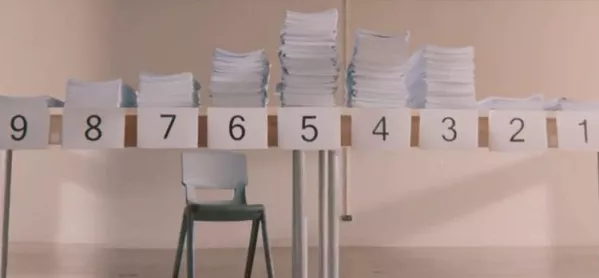More than £380,000 of public money has been spent on telling schools, students and employers about changes to GCSEs, including the new 9-1 grading system.
In addition, another £121,500 is set to be spent over the summer publicising the reforms, according to information released in response to a parliamentary question.
Exams regulator Ofqual said it was “essential” that the major changes were communicated to a wide audience, and that research shows that understanding of the new grading system and other GCSE reforms has increased.
Research that Ofqual carried out at the end of last year, however, revealed that more than two-thirds of students and parents did not understand the 9-1 grading scale that will replace the A*-G system at GCSE.
Labour’s Lucy Powell, who asked the question, said changing grades from letters to numbers is an “expensive vanity project” that is causing “chaos and confusion”.
Next month, pupils in England will see their GCSE results in English and maths graded 9-1 - with 9 the highest mark. In the next few years, the change will be brought in for all subjects.
Supporters have argued that the move is necessary to allow more differentiation between students, but there have been concerns over a lack of clarity about the new system.
In his response to Ms Powell’s question on the cost of introducing new GCSEs and changing the grading system, schools minister Nick Gibb said that Ofqual had spent around £370,000 during 2016-17 on “testing and promoting understanding of the new grading arrangements with employers, parents, teachers and students”.
Meanwhile, the Department for Education (DfE) had spent around £12,500 to date on “communications about the GCSE reforms”.
Ofqual is planning to spend a further £82,000 this summer, and the DfE a further £39,500 over the summer. The figures exclude VAT.
Communication ‘essential’
An Ofqual spokesman said: “With some 600,000 students taking the new GCSEs this summer, it has been essential to communicate these changes to a wide audience, including students, teachers, parents and employers.
“The money has been spent on the development of original films, which have been viewed around 10 million times, as well as on printed materials and social media advertising.
“Independent research conducted on our behalf indicates that understanding of the new grades and the reforms has increased as a result of the work we have done.
“All expenditure was through centralised government contracts, ensuring value for money.”
Ms Powell, a member of the Commons Education Select Committee, said: “Changing GCSE grades to numbers is an expensive vanity project by Conservative ministers which is causing chaos and confusion in our assessment system.
“With just weeks to go before GCSE results are announced, parents, business and pupils remain unclear on what these new GCSE grades mean in practice.
“School budgets remain under huge pressure and the extra burden of all the costs associated with new exams - books, training, systems and so on - is tipping schools over the edge.”
Malcolm Trobe, deputy general secretary of the Association of School and College Leaders, said: “School leaders know what is going on. The vast majority of young people understand the new grading system; parents probably less so.”
Schools are sending out information, such as that from Ofqual, to parents, Mr Trobe said, adding: “We are less certain that employers have fully understood the changes.”
This month, a report from the CBI and Pearson revealed that more than a third of businesses did not know that a new numerical grading system for GCSEs in English and maths will be used from next month.
And a recent survey, commissioned by the DfE, found that a fifth of parents and carers had not heard of the new numerical 9 to 1 scale.
Want to keep up with the latest education news and opinion? Follow Tes on Twitter and like Tes on Facebook




